Request for low Derbyshire reservoirs to retain more water
- Published
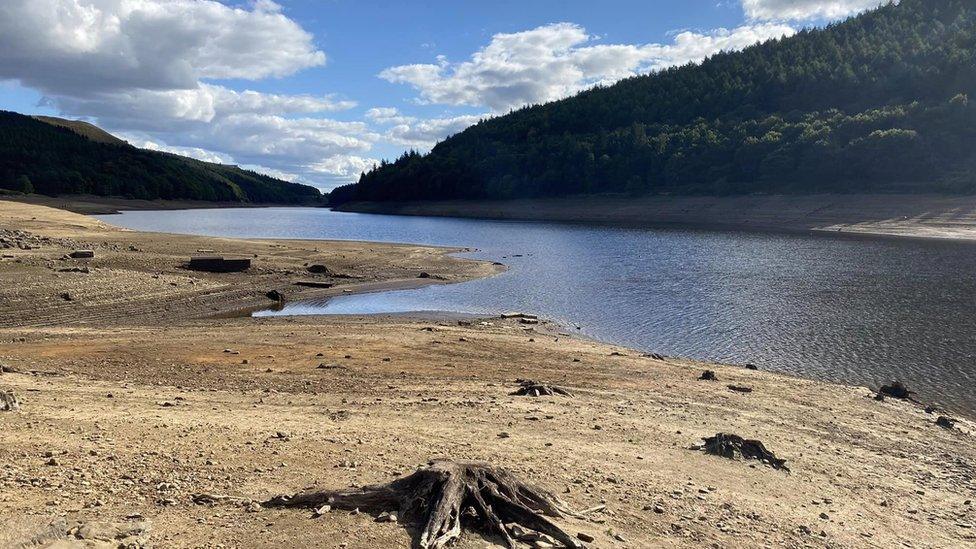
A drought was officially declared in the East Midlands in August
Water company Severn Trent says it has applied for a drought permit for three of its reservoirs in Derbyshire after the driest six months since 1850.
The permit, issued by the Environment Agency, would allow the firm to retain more water to boost its supplies ahead of winter.
A drought was officially declared in the East Midlands in August.
The dry conditions have also exposed a village that was submerged in the 1940s to create Ladybower Reservoir.
Severn Trent has requested the permit for the Howden, Derwent and Ladybower reservoirs.
It would allow them to retain more water in the reservoirs rather than releasing it into the River Derwent.
The company said this would allow the reservoirs to hold on to an extra 20 million litres of water each day.
Doug Clarke, from Severn Trent, said: "Our reservoirs in the Upper Derwent Valley are lower than average.
"While we're hopeful that rainfall throughout the autumn and winter will help to refill reservoirs, we want to be prepared if the dry weather continues.
"This permit is the next step in ensuring that we have plenty of raw water available in reservoirs as we go into next year."
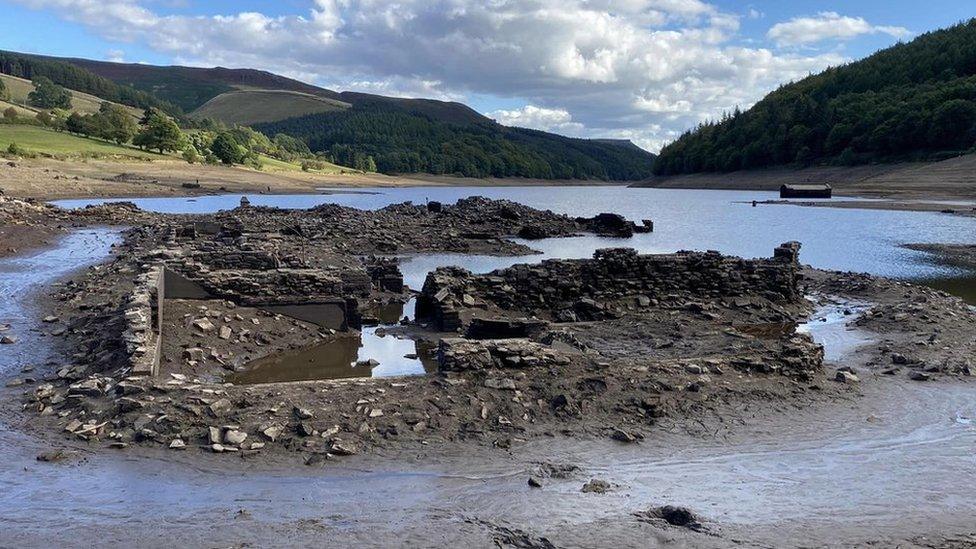
The dry conditions have exposed a village that was submerged to create Ladybower Reservoir
The most recent figures from Severn Trent showed Ladybower Reservoir was at just over 35% capacity.
The low water levels have given visitors a "fascinating" glimpse of a former village that was flooded to create the reservoir.
Margaret Pass, a regular visitor to the site, said: "It's the first time I've seen the water levels this low and been able to see the lost village.
"It was very fascinating, but at the same time very poignant to think about the upheaval lots of people went through losing their homes."
Another visitor, Graham Gilham, said he had visited the reservoir for the first time this year.
"Its eerie to stand amongst the ruins.
"Certainly a strange but very interesting experience," he said.
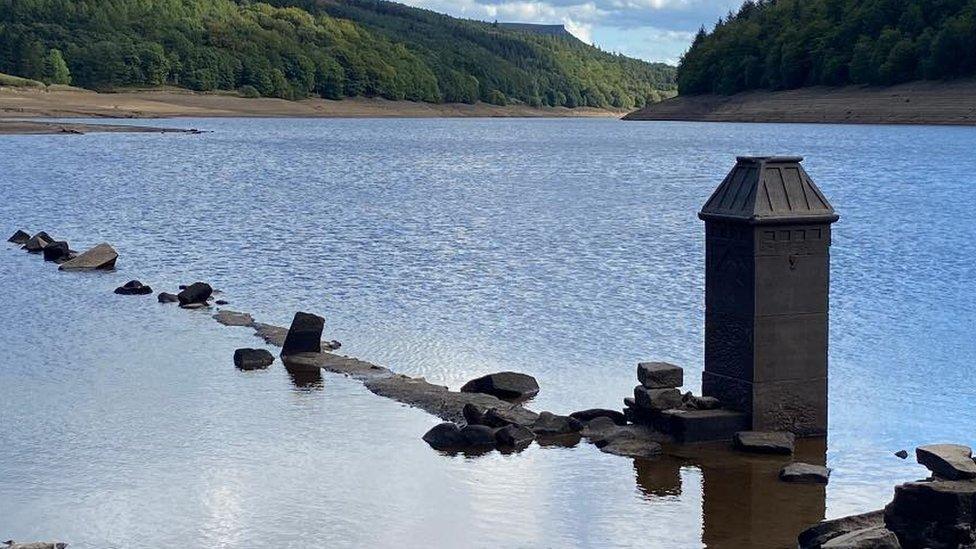
Severn Trent said it wanted to be prepared in case the dry weather continued
Severn Trent has warned visitors not to walk on the exposed bed.
"We would ask you to be aware that the exposed reservoir bed is extremely muddy and not safe to walk on," a spokesperson said.
"You can get great views from the purpose-built paths, so please do not attempt to walk out to the ruins."
The Environment Agency said it was working closely with Severn Trent during the drought conditions.

Follow BBC East Midlands on Facebook, external, on Twitter, external, or on Instagram, external. Send your story ideas to eastmidsnews@bbc.co.uk, external.
Related topics
- Published16 August 2022
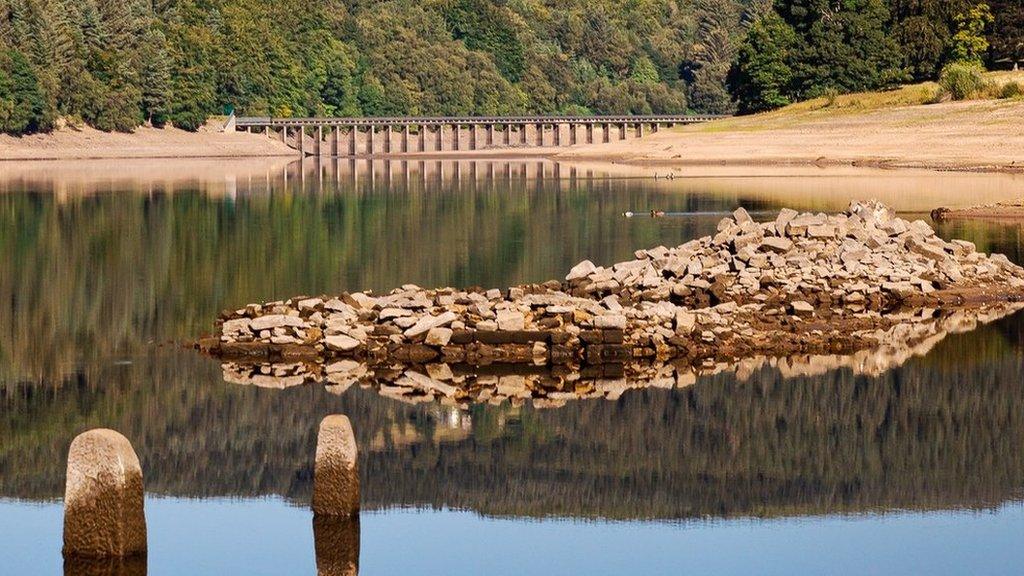
- Published13 August 2022
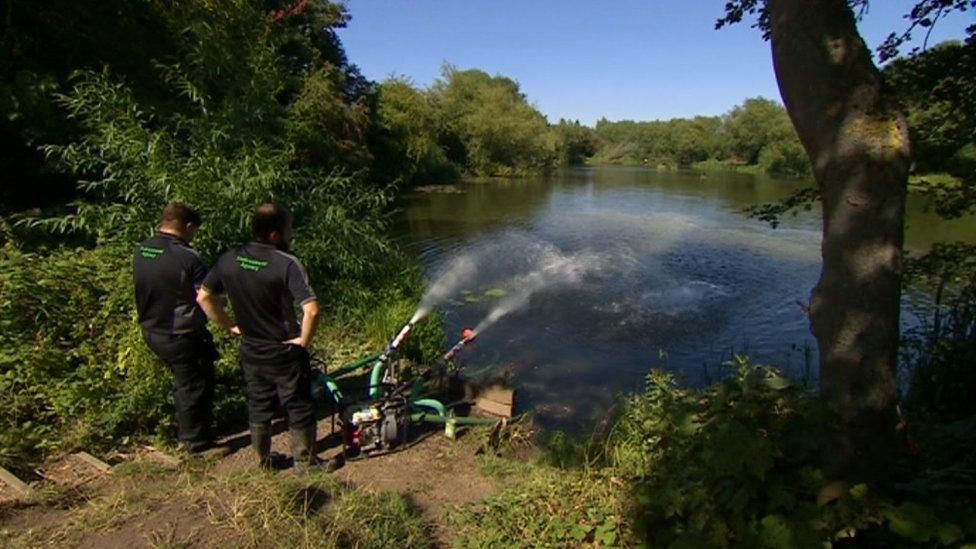
- Published12 August 2022
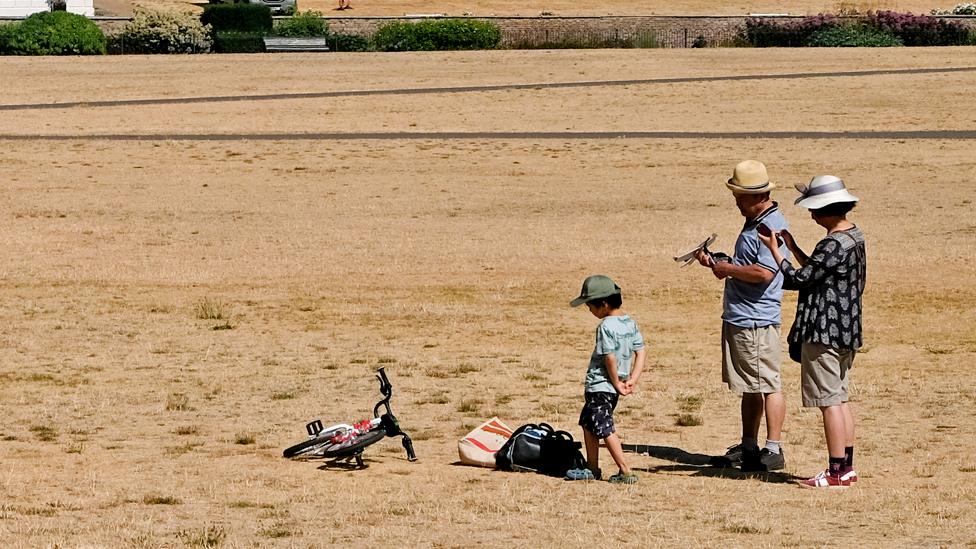
- Published19 August 2022
